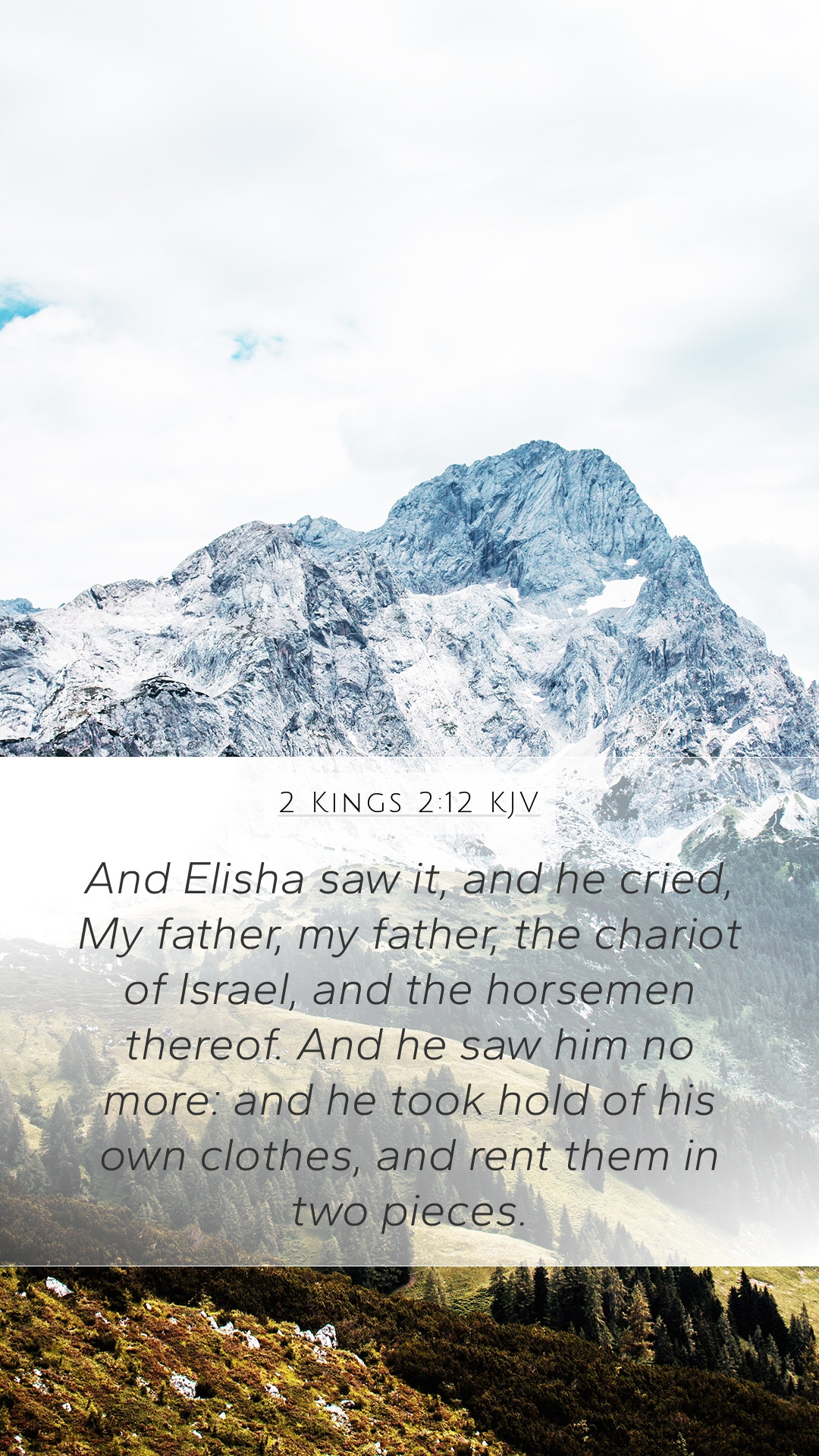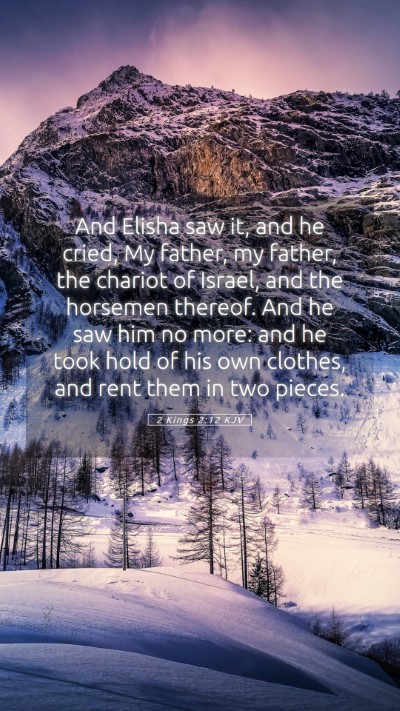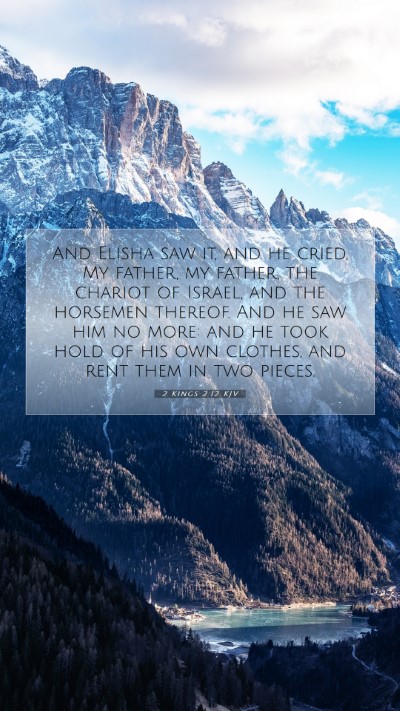Bible Verse Explanation for 2 Kings 2:12
The verse 2 Kings 2:12 states, "And Elisha saw it, and he cried, My father, my father, the chariot of Israel, and the horsemen thereof."
This moment is significant in the transition of prophetic leadership from Elijah to Elisha.
It captures the deep emotional bond between the prophet and his mentor as well as the divine manifestation of God's power through Elijah's miraculous ascension.
Understanding the Significance of 2 Kings 2:12
This verse holds a rich tapestry of meanings that can be explored through the lenses of various public domain commentaries:
-
Matthew Henry:
Henry emphasizes the relational aspect of Elijah and Elisha's connection. He highlights Elisha's recognition of Elijah as not only a mentor but also as a father figure.
The phrase "My father, my father" indicates the depth of this relationship. Moreover, the use of "chariot of Israel" symbolizes strength and spiritual protection that Elijah embodied.
-
Albert Barnes:
Barnes points out that the chariot and horsemen metaphor reflects the divine assistance and power that God provides.
Elisha, witnessing Elijah's ascension, realizes that the true strength of Israel does not lie in its military might but in the power of God, which is symbolically represented through Elijah's exit.
-
Adam Clarke:
Clarke provides a historical context, explaining how this event marked a pivotal change in Israel's prophetic ministry.
He notes that Elisha’s cry expresses grief over Elijah's departure, but also signifies a passing of the prophetic mantle, a testament to the continuity of God's work among His people.
Commentary Insights
Collectively, these commentaries reveal that 2 Kings 2:12 encapsulates themes of:
- Divine Succession: Acknowledges the transfer of prophetic authority and the importance of mentorship in spiritual leadership.
- Emotional Loss: Highlights the grieving process that follows a significant loss, especially in spiritual contexts.
- God's Protection: Emphasizes that true strength and security come from an alliance with God rather than earthly power.
- Historical Reflection: Encourages understanding the historical significance of the prophets in the narrative of the people of Israel.
Relation to Other Scriptures
2 Kings 2:12 can be cross-referenced with the following passages for a more robust understanding:
- 1 Kings 19:19-21: The calling of Elisha and his anointing as a prophet following the same mantle of Elijah.
- 2 Kings 2:11: The actual ascent of Elijah, providing the backdrop for Elisha's emotional response.
- Acts 1:9: The ascension of Jesus, drawing parallels in the significance of divine departures and their implications for believers.
Application in Daily Life
Understanding the transition from Elijah to Elisha offers modern readers lessons about mentorship, loss, and perseverance.
Believers are encouraged to reflect on their own spiritual journeys, recognize the leaders in their lives, and consider how they can carry forward the lessons learned from those who have influenced them.
Conclusion
In summary, 2 Kings 2:12 is a profound verse rich in emotion and significance. It reveals the layers of relationships among God’s servants and the enduring power of divine callings.
Through careful study and reflection on this verse and its context, believers can gain deeper insights into their own roles in God’s ongoing narrative.
Final Thoughts
For those seeking bible verse meanings, bible verse interpretations, or bible study insights,
engaging with commentaries such as those from Matthew Henry, Albert Barnes, and Adam Clarke can provide beneficial perspectives and unveil the richness of scripture analysis
and biblical exegesis that is foundational in bible study groups and online bible study.


